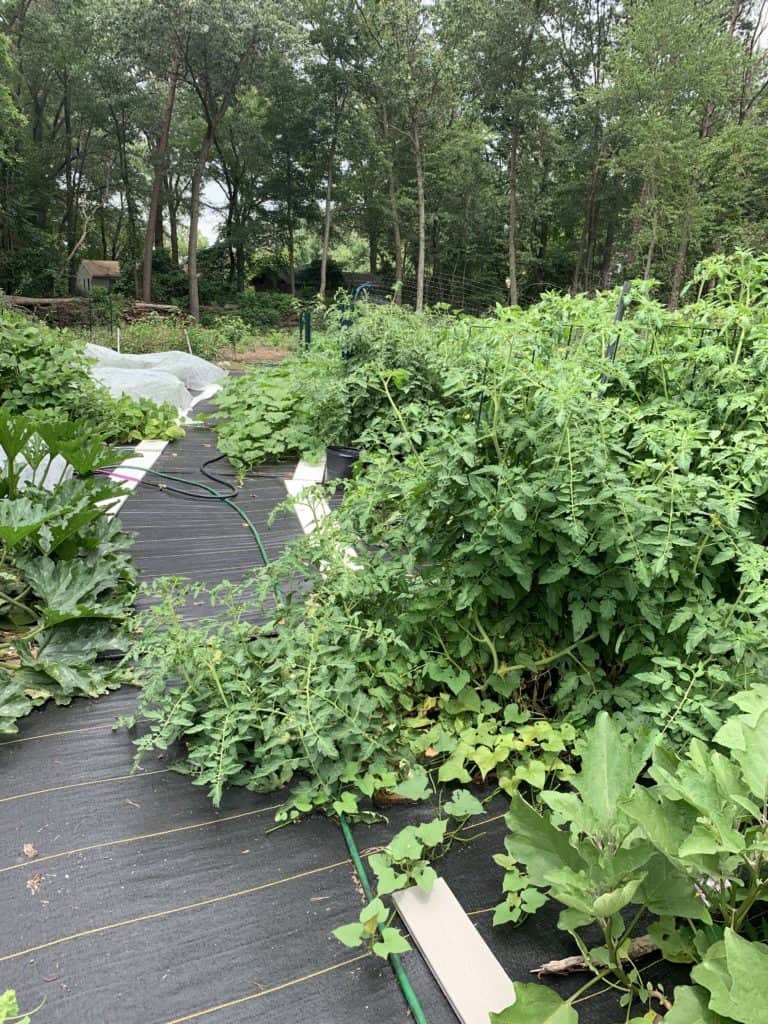Gardening for Health

A Healthy Diet for a Healthy Planet
By Maria Price
These days there are so many diets aimed at providing good health. We have to choose according to what makes our bodies feel good and also be conscientious about our environment. A garden can provide the foundations of a healthy diet, but if you’re going to grow your own food, do it without the use of harsh chemicals. I recommend using Organic Materials Review Institute-approved products when needed.
As for what to eat, the book Food Fix by Dr. Mark Hyman gives some very healthy guidelines as to what to put into our bodies. The main principle is that we should eat whole food, real food, that’s recognizable from field to fork.
Your diet should be aspirational, not perfect. It should contribute to better health for you, a better world for humans, including food workers and farm workers and a better world for the environment, our climate and our economy.
First of all, Hyman suggests we eat mostly whole plants; plant-rich, not necessarily plant-based. This does not mean “factory foods” based on corn, wheat and soy.
The World Health Organization (WHO) recommends a minimum of five servings a day. Hyman says it should be 15 servings or 7 to 8 cups of veggies and fruit a day. Go easy on the fruit and stick to low-glycemic fruits like berries and enjoy sweeter fruits as an occasional treat.
More of Hyman’s suggestions: Eat more foods with healthy fats. Good fats include nuts, seeds, avocados, pasture-raised eggs, extra virgin olive oil, avocado oil, organic virgin coconut oil, omega-3 fats from fish, animal and saturated fat, and 100% grass-fed meat and butter.
Eat more nuts and seeds. They have been shown to prevent and reverse disease.
Choose regeneratively raised animal products whenever possible. They help draw down carbon and reverse climate change. Again, meat should be a side dish of about 4 to 6 ounces per meal.
Eat pasture-raised eggs. They are a cheap source of high quality, bioavailable nutrients including vitamin B-12 which you can’t get from a vegan diet. By the way, the 2015 Dietary Guidelines determined that dietary cholesterol does not cause heart disease.
Eat sustainably raised or harvested fish that are low in mercury fish and high in omega-3. These include sardines, herring, anchovies, mackerel and wild caught salmon.
Eat only unprocessed or minimally processed whole grains (not whole-grain flours). All grains can raise blood sugar. Beware of modern wheat, mostly consumed as refined flour which is worse for your blood glucose than table sugar. Stay away from sugar, flour and refined starches and especially sodas.
Eat beans as they are a great source of fiber and protein.
Stay away from most refined vegetable, bean and seed oils, such as canola, sunflower, corn, grape seed and soybean oil.
Choose the right dairy, such as A2 cow milk and from 100% grass-fed cows.
Stay away from pesticides, herbicides, antibiotics, food additives, hormones and GMO foods.
Eat for you and the planet and start planning your veggie garden now.
